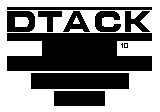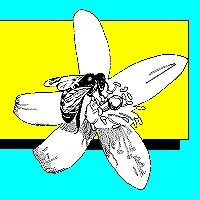APIS Volume 2, Number 12, December, 1984

In this issue
- The Honey Promotion and Consumer Information Act
- Index of 1984 Issues of APIS
THE HONEY PROMOTION AND CONSUMER INFORMATION ACT
[Editor's note: This act was passed and has been renewed several times with the same provisions. In the future, this may change.]
The fuss and furor over the honey bee tracheal mite has taken center stage lately and promises not to easily give it up. Nevertheless, as clear and present a danger as the mite appears to be, it still is less significant to the health of the beekeeping industry than promoting and marketing honey. The simple, but important, fact remains that this year the Commodity Credit Corporation (CCC) will reluctantly become the not-so-proud owner of close to 110,000,000 pounds of U.S. honey, representing close to one-half the nation's average annual crop!
Concern about this and its effect on the beekeeping industry is the basis behind the Honey Research, Promotion and Consumer Information Act, recently signed by President Reagan. It self-imposes mandatory assessments on honey produced or imported into the U.S. The money raised will then be used to finance honey research, develop new markets and promote increased consumption.
The next step is for the Secretary of Agriculture to order the Act's implementation and initiate hearings, which might commence as early as January, 1985. Coincidentally, the annual meeting of the American Beekeeping Federation, one of the Act's major proponents, will take place in Tampa, Florida, January 14 through 18. This year's emphasis is Promoting and Marketing, and there will be much discussion about these subjects and how they pertain to the Honey Research, Promotion and Consumer Information Act. Attending this meeting and the hearings that will follow in the southeast is a must for anyone interested in the future health of the U.S. honey industry. For details about the meeting, write ABF/Tampa 1985, P.O. Box 1113, Wimauma, FL 33598, ph. 813/685-9870. You need not be a member of the Federation to participate, but a registration fee is required.
Recently, Frank Robinson, Secretary Treasurer of the American Beekeeping Federation, wrote some frequent questions and answers about the Honey Research, Promotion and Consumer Information Act. I reprint them here so that Florida beekeepers might be better informed when they come to Tampa or attend a local hearing on the Act.
- If Congress passes the Act, will there be a referendum? Yes, a majority of those voting must favor the program for it to be instituted. The referendum will only be held if hearings first indicate a need is present.
- Who can vote in the referendum? Only producers and importers handling 6,000 lbs. or more a year.
- Who pays the cost of the referendum? If the referendum does not pass, the U.S. Dept. of Agriculture pays. If the vote is favorable, costs will be paid by funds collected from the resulting assessments.
- Is the program permanent? A referendum must be held every five years, when the Honey Board that governs the Act asks for one, or when ten percent or more of the importers and producers request one.
- Will the program increase consumer's costs? Not likely; low-cost imported honey did not reduce retail prices. Prices in any case, however, are expected to rise with increase in per capita consumption.
- Will all beekeepers be assessed? Only those producers or importers of 6,000 lbs. per year, those eligible to vote.
- Will honey processors and producer-packers be assessed? Honey processors will not be assessed, but will have to collect assessments and keep appropriate records; producer-packers will only be assessed if they PRODUCE 6,000 lbs. per year.
- Will honey importers be assessed? Yes, those handling more than 6,000 lbs. per year.
- What is the rate of assessment? The first year would be $0.01 per lb.; maximum possible assessment is $0.04 per lb. The rate can change no more than $0.005 (one-half cent) per lb. per year.
- Is the assessment in addition to a state assessment? If a state assesses $0.01 (one cent) per lb. or more, there will be no additional assessment. If the state assessment is less, the maximum rate will be $0.01 per lb., and only that portion greater than the state assessment will be assessed.
- Who collects the assessment? The "first handler," the person who accepts delivery of the honey or the importer who handles the paper work for a shipment.
- Will honey under loan be assessed? Yes, the assessment will be withheld from the loan proceeds.
- Will the "first handler" be compensated for collecting assessments and keeping the required records? No.
- What is the penalty for not paying the assessment? The Secretary of Agriculture can issue an order warning violators to abide by the provisions of the Act. Continued violations can lead to civil penalties of up to $5000.00 for each violation.
- Can a refund of the assessment be requested? Yes, domestic producers can request a refund; imorters are limited to the same percentage of refunds as provided to domestic producers. Refunds will be paid in June and December.
- Can beekeepers who are exempt (not producing in excess of 6,000 lbs. per year) make voluntary contributions to the program? Yes.
- How much money will be raised by the assessment? Approximately two to two and one-half million dollars annually.
- Will it be enough money to do anything? Yes, but it must be spent wisely.
- Who decides how the funds will be spent? The Honey Board administers the progam. It prescribes the rules and regulations, investigates and reports violations, recommends changes or amendments needed, employs a manager and a staff, prepares a budget, administers the collection of the assessments, prepares plans for research, promotion and consumer information, and maintains necessary records.
- Who makes up the Honey Board? The Honey Boards is made up of producers, processors, importers, marketing cooperatives and the general public. Seven (7) members must be producers, and there shall be one member from each of the seven honey producing U.S. regions, established and based on honey production. Two (2) members must be handlers or processors; two (2) members must be importers; one (1) member must be an officer or employee of a honey marketing cooperative; one (1) member must be from the general public.
- Who selects the Honey Board? The Secretary of Agriculture appoints members, based on nominations submitted by a Nominations Committee. Nominations of handlers and importers will be submitted by organizations representing each interest group.
- Why are processors represented on the Honey Board, if they are exempt from assessment? The Secretary of Agriculture decided processors who will be responsible for collecting assessments should be represented.
- Are Honey Board members paid? They serve WITHOUT salary, but will be reimbursed for reasonable expenses occurred in their duties.
- How long do Honey Board members serve? They are appointed for three years, except at first one-third are appointed for one year, and one-third for two years. They may not serve longer than two consecutive terms.
- What is the National Honey Nominations Committee (NHNC)? This committee may include a representative from each state, but MUST include a representative from each of the top twenty (20) honey producing states.
- How is the National Honey Nominations Committee (NHNC) selected and for how long? Each state's beekeeping association may submit a nomination. If the state association does not nominate, the Secretary of Agriculture can provide for nomination by a different manner. If a state is not one of the top ten honey producing states, and does not submit a nomination, it will not be represented. Terms are for three years, but no more than two consecutive terms. Original appointments are for staggered terms.
- Who is eligible to serve on the National Honey Nominations Committee (NHNC)? Anyone the state associations nominate.
- Is every state represented on the NHNC? If it so wishes.
- How often does the NHNC meet? It must meeting annually, but after the first meeting can do business by mail.
- Are members of the NHNC paid? No, but they will be reimbursed for reasonable expenses incurred in conducting business.
- How much staff will be necessary to administer the program? A minimum will be a manager and support staff of a secretary and bookeeper. Final size depends on size of the program.
- Is there any evidence that generic promotions are effective? Yes, with many commodities--"Incredible Edible Egg," Florida orange juice, Potato Board, etc.
- Will generic promotion eliminate the need for "brand" promotion? No. Generic promotions only supplement, but do not replace, brand advertising.
- Will generic advertising attract more foreign honey? Yes, but imported honey is also assessed. A great increase in imported honey is not considered likely because already the U.S. imports much of the world's crop.
- If the program is not effective, can it be terminated? Yes, anytime it is not supported by a majority of those being assessed or if the Secretary of Agriculture determines its not accomplishing its goals.
- What kind of research might be financed by assessment funds? Any type designed to enhance desirability, usability, and marketability of honey products.
- What is meant by consumer information? Information on the usage and/or care of honey or honey products.
- What will the annual administrative costs to the Department of Agriculture? Estimates include a start-up cost of $20,000 and annual administrative costs of $40,000 annually.
1984 APIS INDEX
The following is the Volume 2 (1984) index of APIS for reference.
- February--Pollination value, Credit;
- March--Poisonous Nectar Plants;
- April--Beehive Preservation, Wet Wax Moths;
- May--CCC Honey Regulations, EDB in Honey;
- June--Colony Stress and Disease Relationships;
- July--Jim Herndon Retires, A Case for Comb Renovation, Country of Origin Labeling of Honey;
- August--Bee Pollen: Use, Contaminants and Standards, Trapping, Marketing:
- September--Financial Management, Acarine Mite Update;
- October--Bee Locations and Citrus Canker, Bears and Bees Report;
- November--Moving into Citrus Groves, Honey Bee Tracheal Mite Life Cycle; and.
- December--Details of the Honey Research, Promotion and Consumer Act.
The newsletter is generally published electronically before it appears in print. When it is published, I send a mail message to those counties online at the time and other interested parties. For subscription information, see the APIS home page..
Sincerely,
Malcolm T. Sanford
Bldg 970, Box 110620
University of Florida
Gainesville, FL 32611-0620
Phone (352) 392-1801, Ext. 143 FAX: (352)-392-0190
http://www.ifas.ufl.edu/~entweb/apis/apis.htm
INTERNET Address: MTS@GNV.IFAS.UFL.EDU
©1984 M.T. Sanford "All Rights Reserved

















